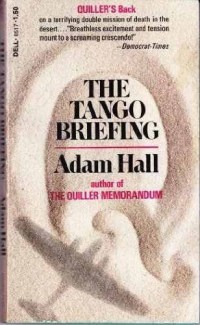
Published by Scribner on June 4, 2013
"Two agents, both witting of the other, a single handler, the whole case directed by a mad scientist of a CI chief, two mole hunts -- and the added necessity of having to decide where to eat dinner." That sentence, appearing about three-quarters of the way into Red Sparrow, stands as a quick-and-dirty summary of an absorbing plot.
Red Sparrow begins with a traditional, but well executed, surveillance/chase scene. CIA agent Nathaniel Nash meets with a highly placed asset in Moscow, code named MARBLE, and manages to elude the FSB agents who stumble upon the meeting site. Vanya Egorov, First Deputy Director of the SVR, knows Nash met with someone, but doesn't know the traitor's identity. Nash has protected his asset but has blown his own cover.
After Nash is reassigned to Helsinki, the story shifts to Dominika Egorova, Vanya's niece, a determined woman who sees the colors that surround people. A detailed backstory explains how this oddly-wired woman became an SVR operative. It eventually becomes Dominika's mission (and Vanya's obsession) to trap Nash, to learn from him the identity of his Russian asset. Much of the initial fun in Red Sparrow derives from the chance to follow two intelligent intelligence officers as they try to recruit each other. The story eventually introduces a highly placed spy in the American government, the counterpart to MARBLE, but Nash and Dominika always remain the story's focus. About halfway through the novel, a conventional plot takes the sharp turn that separates jaw-dropping stories from those that are merely good.
A good spy novel needs moments of tension. Jason Matthews excels at those. He builds anticipation that instills serious teeth-gnashing as he places key characters in precarious positions. He makes palpable the anxiety endured by double agents who risk being unmasked. The last quarter of the novel is particularly intense. The plot thread concerning Dominika's relationship with Nash could have become trite (the stuff of trashy movies), but Matthews makes the emotions real while keeping the story fresh.
A good spy novel also needs good tradecraft, and the descriptions of tradecraft in Red Sparrow are exceptional. Spy novels often describe the schools in which the techniques of field work are taught, but I've never encountered such a thorough description of training in seduction, the clinical lessons imparted at Russia's Sparrow School. Although they detail the objectification and humiliation of women, the scenes are written with sensitivity and compassion.
The convincing portrayal of Dominika's roiling emotions, her evolving contempt for her masters, and Nash's evolution from a nakedly career-driven spy to a grounded human being make the lead characters in Red Sparrow memorable. Even minor characters are given full biographies. In fact, if Red Sparrow has a weakness, it is that so many characters are developed in so much depth that the novel is longer than it needs to be. Fortunately, it never drags, and that weakness disappears before the novel's second half.
Dominika's ability to see colored auras emanating from people is a little whacky for my taste, but that's the novel's only other misstep. Like real people, the characters spend some of their time eating. Their meals are described in mouth-watering prose. Rather incongruously, each chapter is followed by a recipe for some dish that is mentioned in the text. A chapter that ends with a dramatic death, for instance, jumps to a recipe for shrimp salad. The recipes are an odd addition to a spy novel, but people who have more culinary skill than I do might find them useful. In any event, they don't detract from one of the most impressive debut espionage novels I've encountered.
RECOMMENDED
 Saturday, August 17, 2013 at 9:18AM
Saturday, August 17, 2013 at 9:18AM 


